What It Really Takes to Start a Food Truck Business in Orlando, FL
What it really takes to start a food truck business in Orlando, FL: permits, costs, parking rules, where to buy a truck, and more in this step-by-step guide.
Tauseeq Magsi
loading...
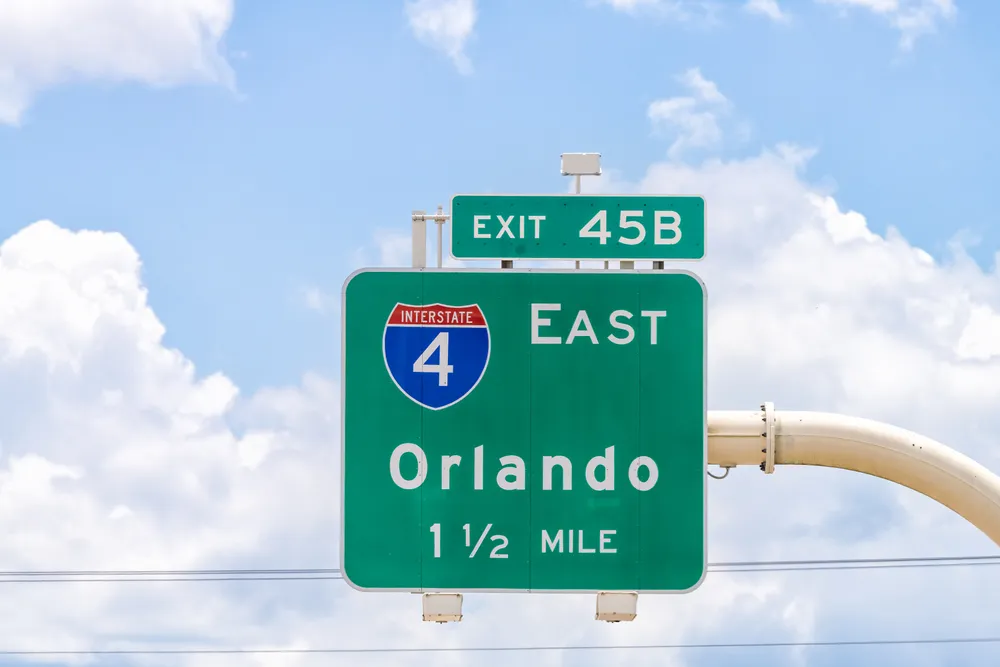
Orlando is a top destination for food trucks due to its vibrant food scene and high tourist traffic.
Is Orlando a Good City for Food Trucks?
Step-by-Step Guide to Starting a Food Truck in Orlando
Step 1: Finalize Your Concept & Business Plan
Step 2: Register Your Business
Step 3: Get All Required Licenses & Permits
Step 3.1: Florida State-Level Requirements
Step 3.2: Orlando & Orange County Local Requirements
Step 3.3: Downtown or Special Program Permits
Step 3.4: Fire and Safety Permits
Step 4: Buy or Rent Your Food Truck
Step 5: Explore Funding Options
Step 6: Secure a Commissary Kitchen
Step 8: Know Where to Park and Sell
If you're looking up how to start a food truck in Orlando, chances are you're past the idea stage and ready to take action.
You've got the food concept. You're motivated. Now you need the real steps to turn your plan into a business—specifically within the Orlando, Florida market.
This guide is built for people like you.
It covers everything from required licenses to where you can legally operate, and even how to find a food truck for sale in Orlando.
We'll also answer common questions like “where can I park my food truck in Orlando?” and link you to key forms so you don't waste hours researching.
You might be buying one or picking from food trucks for sale in Orlando — either way, this article will walk you through every step.
Let’s walk through everything you need to legally launch and start selling.
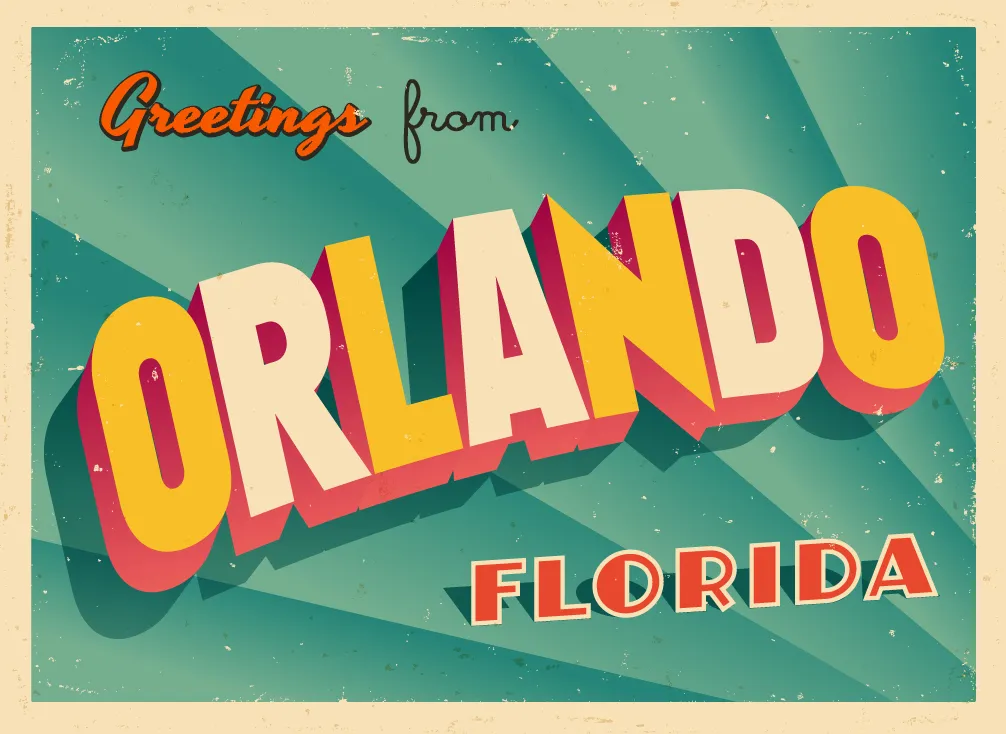
Orlando receives over 70 million tourists annually, making it a prime location for food trucks.
Is Orlando a Good City for Food Trucks? (top)
Yes, but it’s not a free-for-all.
Orlando is home to over 2.5 million residents in the metro area and attracts more than 70 million tourists annually, making it one of the busiest cities in the U.S. for events, conventions, and tourism-driven foot traffic. That’s a huge customer base for mobile food vendors.
However, Orlando doesn’t allow trucks to freely roam and park anywhere. The city allows food trucks to operate if they follow the rules set by the Mobile Vending and Services Guide, which limits vending to specific zones, days, and events. You'll need permits and written permissions to operate legally.
The competition is real, but with the right planning, Orlando can be a profitable location for a food truck business.
Step-by-Step Guide to Starting a Food Truck in Orlando (top)
Now that you know Orlando is a promising (but regulated) market, let’s break down how to actually launch. This isn’t just theory —we’re talking real actions you need to take to go from idea to first sale. Each step is specific to the Orlando, FL area and helps you move forward with clarity and confidence.
If you’re serious about how to start a food truck in Orlando, this is your roadmap.
Step 1: Finalize Your Concept & Business Plan (2–4 weeks) (top)
Even if your idea feels ready, it’s important to lock down the full business plan.
✅ What’s your food concept?
✅ Who’s your ideal customer—locals, tourists, college students, or all of them?
✅ What’s your launch budget?
✅ Will you focus on lunch crowds, evening events, catering gigs, or a mix?
You’ll also want to estimate your startup costs—this includes the truck, permits, commissary fees, equipment, and staff.
Getting clear on this now will help you when it's time to look for funding or apply for licenses later.
Step 2: Register Your Business (1–2 weeks) (top)
Before making your first sale, your food truck must be legally registered as a business in Florida.
First, choose your business structure:
✅ Sole Proprietor – This is the easiest setup, but it doesn’t protect your personal assets. If anything goes wrong, you're personally liable.
✅ Limited Liability Company (LLC)– A popular choice for food trucks. It offers legal protection, separates personal and business finances, and is simple to maintain. You can register an LLC herefor $125.
✅ Corporation – Rarely used for small food trucks, but worth exploring if you plan to scale or add investors.
Once your structure is in place, apply for an Employer Identification Number (EIN) through the IRS. It’s free and required to open a business bank account, hire staff, and file taxes. You can apply directly at irs.gov.
Having a registered business and EIN also prepares you for the next steps: permits, insurance, and local licensing.
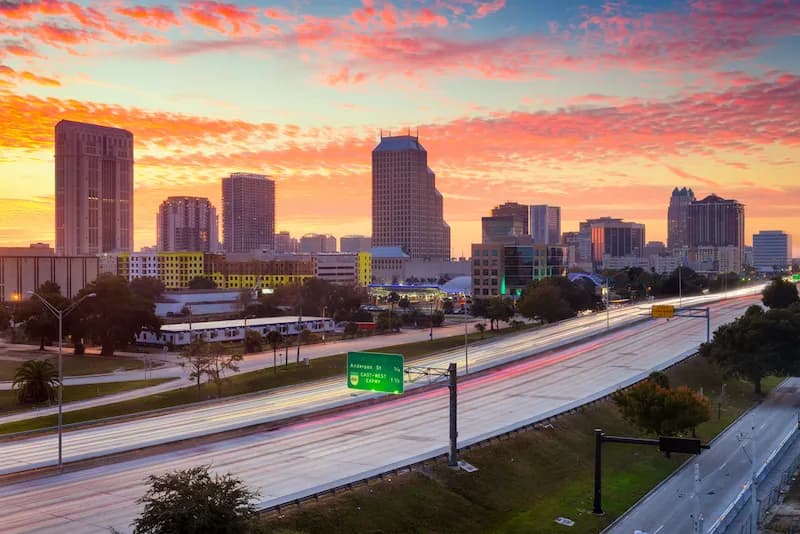
Give yourself 1-2 weeks to register your business and get your EIN.
Step 3: Get All Required Licenses & Permits (3–8 weeks) (top)
Here’s a detailed breakdown of every license and permit you’ll need to legally operate your food truck in Orlando, FL.
Step 3.1: Florida State-Level Requirements (top)
1. Mobile Food Dispensing Vehicle (MFDV) License
✅ Your food truck must be registered with the Florida Department of Business and Professional Regulation (DBPR) under Retail Food Service (Hotels & Restaurants).
✅ This license covers safety measures, hot water, sinks, refrigeration, and fire suppression systems.
💰 Cost: Approximately $50 application + $347 per year for a full-year license.
2. Food Permit from DBPR or FDACS
✅ If you’re preparing hot or cooked foods: go through DBPR.
✅ If you serve only prepackaged or raw items: register with Florida Dept. of Agriculture and Consumer Services (FDACS).
✅ You’ll need a Commissary Letter of Agreement (more on that in Step 6).
💰 Cost: Varies—typically $50 to $450, depending on food type and facility.
3. Food Handler Certification (Employee Health Permit)
✅ Florida requires all workers handling food to complete a certified Food Handler training, like ServSafe or Learn2Serve.
✅ Managers with a Food Protection Manager Certification may be exempt.
💰 Cost: $10 to $15 per person.
4. Sales Tax Registration (DR-1)
✅ Food trucks must collect and remit Florida sales tax (6% plus any county surtax).
✅ Register with the Florida Department of Revenue
💰 Cost: No cost to register.
Step 3.2: Orlando & Orange County Local Requirements (top)
5. Determine Your Type of Mobile Business
Orlando classifies mobile food businesses into categories based on vendors, number of sales days, and locations.
6. Apply for a Business Tax Receipt (BTR)
To operate a business in Orlando, you must pay a tax and the Business Tax Receipt (BTR) is proof of having done so.
✅ Check your eligibility and apply online if you have all required documents.
✅ You must provide:
1️⃣ State license (DBPR or FDACS)
2️⃣ Sunbiz registration or EIN/SSN
2️⃣ Written permission from the property owner
✅ Once submit for a Business Tax Receipt, you will receive a billing summary within 7 business days.
Timeline: Plan for 3–4 weeks processing.
Step 3.3: Downtown or Special Program Permits (top)
7. Downtown Mobile Food Vending Zone Permit
✅ If you want to vend in designated downtown areas,
apply for this permit.✅ It requires:
1️⃣ City’s approval
2️⃣ Certificate of liability insurance naming the city
💰 Cost: Some areas were free under past promotions, but check the current fees.
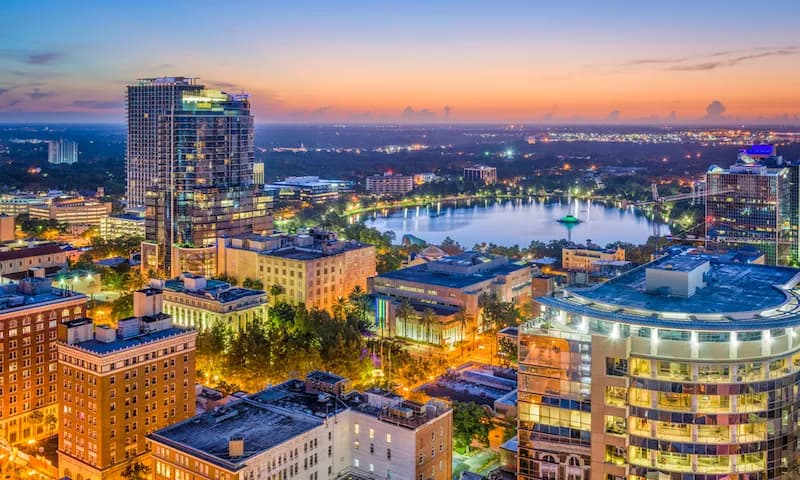
Be sure your food truck is properly permitted before selling in the downtown Orlando area.
Step 3.4: Fire & Safety Permits (top)
8. Fire Safety Inspection & Compliance
Food trucks must pass inspection from the Orlando Fire Department or Fire Marshal.
Requirements include:
✅ Certified fire suppression system
✅ Class K fire extinguisher
✅ Safe gas/electrical installations
💰 Cost: $25. The inspection is conducted at the OFD Headquarters, specifically at Station 1.
Step 4: Buy or Rent Your Food Truck (4–12 weeks) (top)
This is one of the most important (and expensive) steps in starting your business.
Finding the right truck takes time, and it’s where many first-time owners make mistakes—either by overspending or buying a vehicle that doesn't meet local health and fire codes.
Start your search using local listings for food trucks for sale in Orlando to find both new and used options.
Here’s what to expect:
💰 Used Food Truck: $30,000–$60,000
💰💰 Custom-Built Truck: $60,000–$100,000+ (depending on equipment and finishes)
💰 Rental Truck: $2,000–$3,000/month (ideal for testing before you commit)
Before you buy or lease, make sure the truck is equipped to meet all Florida DBPR and Orlando Fire Department standards. Your truck should include:
✅ A certified fire suppression system
✅ Durable, easy-to-clean surfaces for food safety
✅ Built-in plumbing and electrical systems
✅ Adequate space for cooking, prep, and service
If you’re buying used, request all recent inspections, repair history, and permit documentation.
If renting, ask the provider if the vehicle already meets local licensing requirements. This can save you weeks during inspection.
Buying or renting the right food truck takes time, but it’s a make-or-break decision. Plan at least a month—more if you’re going custom.
Step 5: Explore Funding Options (1–3 weeks) (top)
Unless you're paying entirely out of pocket, you’ll need funding to cover startup costs like buying a truck, licensing, equipment, staffing, and marketing.
Most new food truck owners combine a few different financing sources to get off the ground.
Before applying for any funding, calculate how much you’ll need to launch and cover at least your first 3 months of operations.
This shows lenders you’ve thought through your cash flow needs.
Here are your best funding options:
🚀 SBA Microloans
The Small Business Administration offers microloans of up to $50,000, often used for startup expenses.
These loans come with lower interest rates and longer repayment terms. You’ll need a business plan, good credit, and possibly collateral.
Use the SBA Lender Match tool to connect with approved lenders in your area.
🚀 Local Banks or Credit Unions
Many community banks in Orlando offer small business loans for local startups.
These may be easier to get if you already have a relationship with the bank.
They’ll still require a solid business plan and personal financial information.
🚀 Equipment Financing Through Dealers
If you’re buying a new or custom-built truck, the dealer may offer equipment financing.
This works like a car loan—low or no down payment, and monthly payments over 3–5 years.
Ask food truck builders like A1 Food Truck Depot in Orlando about financing packages.
🚀 Crowdfunding or Partnerships
You can also raise startup capital through platforms like Kickstarter or GoFundMe by sharing your story and offering rewards (like free meals or catering credits).
Another option is partnering with a co-founder who can invest in exchange for equity or a share of profits.

With its sunny weather and bustling tourism, Orlando is an ideal city to launch a food truck business.
Step 6: Secure a Commissary Kitchen (1–2 weeks) (top)
In Florida, if your truck doesn’t have full plumbing and waste disposal, you must operate out of a commissary kitchen.
This is a licensed commercial facility that gives you access to:
1️⃣ Fresh water fill-ups
2️⃣ Gray water disposal
3️⃣ Trash dumping
4️⃣ Refrigeration and food prep space
5️⃣ Dishwashing and cleaning stations
Even if your truck has a full setup, the Florida DBPR often still requires a signed Commissary Letter of Agreement as part of your mobile food dispensing license.
Where to find a commissary in Orlando:
✅ Look for shared-use or ghost kitchens, (search “Orlando commissary kitchens” online)
✅ Ask local food truck builders and suppliers for referrals
✅ Use sites like TheKitchenDoor.com to find rentable kitchens nearby
💰 Cost: You’ll typically pay $300–$700 per month, depending on how much space and access you need.
Make sure the commissary is DBPR-approved and provides documentation you can include in your license application. You’ll also want to confirm their hours of access, storage policies, and any restrictions on food types.
Having a commissary lined up is not just a requirement — it also gives you a professional base to prep and operate safely.
Step 7: Get Insured (1 week) (top)
Insurance for food trucks isn’t optional — it’s required to operate a food truck in Orlando.
When applying for your Business Tax Receipt (BTR) in Orlando, you’ll need to submit proof of liability insurance. Some events and private properties may also require that you list them as “additionally insured.”
Here’s what you’ll need:
✅ General Liability Insurance
This covers things like customer injuries, property damage, and legal fees. Most food truck operators carry at least $1 million in coverage, which is the minimum often required for event organizers, commissary kitchens, and the City of Orlando itself.
✅ Commercial Auto Insurance
Since your truck is both a vehicle and a business, personal auto insurance isn’t enough.
This policy covers accidents, damage, or theft involving your truck.
✅ Workers’ Compensation Insurance
If you’re hiring employees, Florida law requires you to carry workers’ comp.
It covers medical costs and lost wages if a staff member gets hurt on the job.
Step 8: Know Where to Park and Sell (top)
If you’re wondering “where can I park my food truck in Orlando,” here’s what you need to know:
You can’t pull up and start selling food just anywhere in the city. Orlando has strict zoning rules and operates under a Mobile Food Vending Pilot Program. This program allows food trucks to vend only in approved locations and events, or on private property with written permission from the owner.
To operate legally:
✅ Apply through the Mobile Vending and Services Guide page on the City of Orlando website.
✅ Submit your license, insurance, and permission letters (if applicable)
Smart places to sell your food:
✅ Team up with breweries, universities, or office complexes
✅ Join local food truck rallies, farmers markets, and festivals
✅ Use platforms like Roaming Hunger or StreetFoodFinder to get booked for events
Always check local zoning and event rules before setting up, and never assume it’s okay to sell without permission—even on private property.
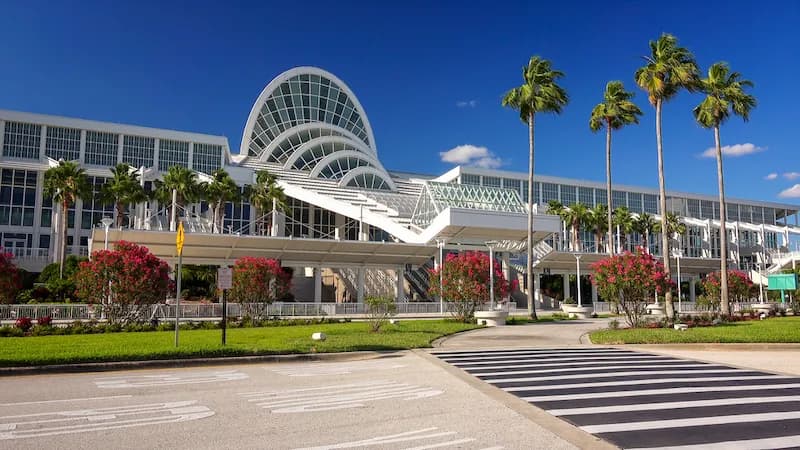
Orange County Convention Center in Orlando, FL. Part of how to start a food truck business in Orlando, FL is knowing where to park and sell.
Step 9: Build Your Crew (top)
Hiring extra help ensures better service, faster turnaround, and less stress on the main operator.
Florida labor laws also require you to track hours, provide safe working conditions, and pay employees fairly—including overtime if they qualify.
Even a small food truck needs a reliable team.
For day-to-day operations, you’ll need:
🔥 1 person to cook and prep the food
🔥 1 person to take orders, serve customers, and handle payments
For busier events or festivals, consider adding:
🔥 1 prep assistant to keep the kitchen running smoothly
🔥 1 runner to help with cleaning, restocking, or handling large crowds

Plan for workers' comp and overtime when building your crew for your food truck in Orlando, FL.
Step 10: Plan for Trash & Utilities (arriba)
Being mobile doesn’t mean you can skip sanitation. Food trucks are held to high standards when it comes to waste, water, and power.
Planning ahead keeps you in compliance with the DBPR and avoids shutdowns during inspections.
Trash & Waste:
✅ Dump all gray water (used for washing, etc.) at your commissary kitchen
✅ Bring heavy-duty trash bags and bins with you to every event
✅ Never dispose of trash on-site unless the venue has a proper setup for it
Water & Power:
✅ Use your commissary to fill up clean water tanks before service
✅ Most trucks carry a quiet inverter generator to power appliances
✅ Some event venues offer plug-in electricity and water access, but you’ll need to confirm this in advance and bring proper adapters
Get Rolling the Right Way in Orlando! (top)
The city of Orlando has a strong food truck culture, but it also comes with clear rules, required permits, and competitive spots.
If you follow the steps above—from locking down your business plan to finding your food truck for sale Orlando and securing your licenses and commissary — you'll be set up for success, not setbacks.
Take your time with each step. Build smart, legal, and scalable foundations. Remember, every permit you file and every form you complete brings you closer to your first sale.
Still figuring out how to start a food truck in Orlando or have questions about where you can park your food truck in Orlando?
Bookmark this guide, and check back as you move forward. Your future food truck business isn’t far away — it’s just one step at a time.
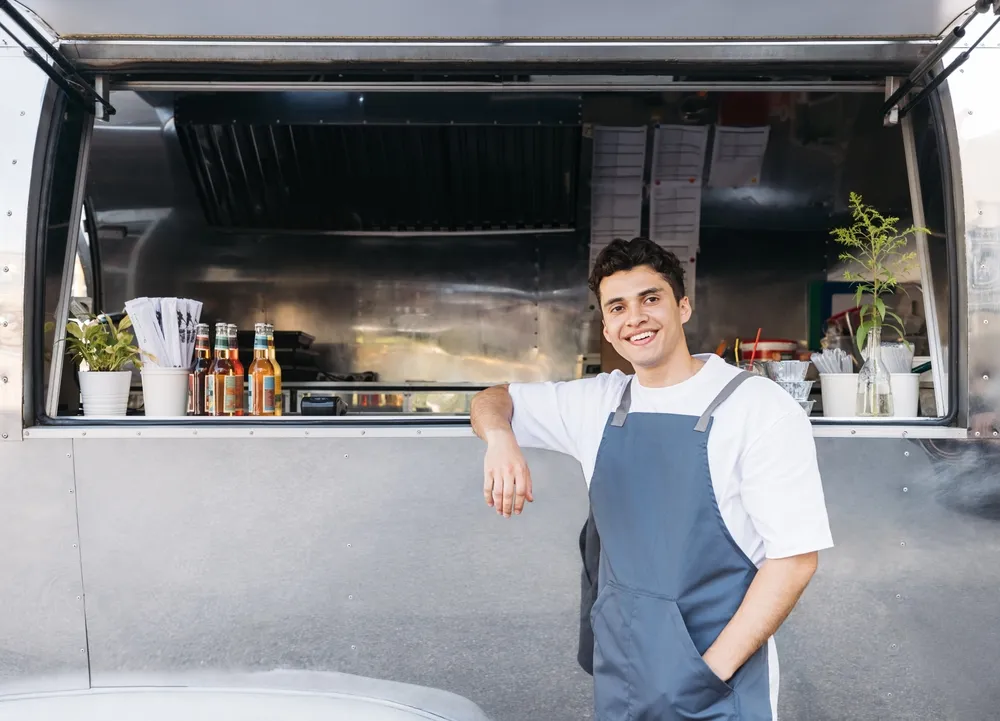
We ❤️ Orlando!
©2025 Cocina Digital Hospitality Group, Inc. All rights reserved.
No part of this publication may be reproduced, stored in a retrieval system, or transmitted in any form or by any means, electronic, mechanical, photocopying, recording, or otherwise, without the prior written permission of the publisher.
We use cookies to enable you to use our site, understand how you use our site, and improve your overall experience.
Cookies allow us to personalize content, track which pages are most popular and least popular, and provide advertising that may be relevant to you.
Please note that cookies that are essential to the proper functioning of the site are required and cannot be disabled.
They are usually only set in response to actions made by you which amount to remembering your settings, a request for services, such as setting your privacy preferences, logging in, or filling in forms.
As such, they are the only cookies that are enabled by default.
You can set your browser to block or alert you about these cookies.
By continuing to use our site, you accept our use of cookies.